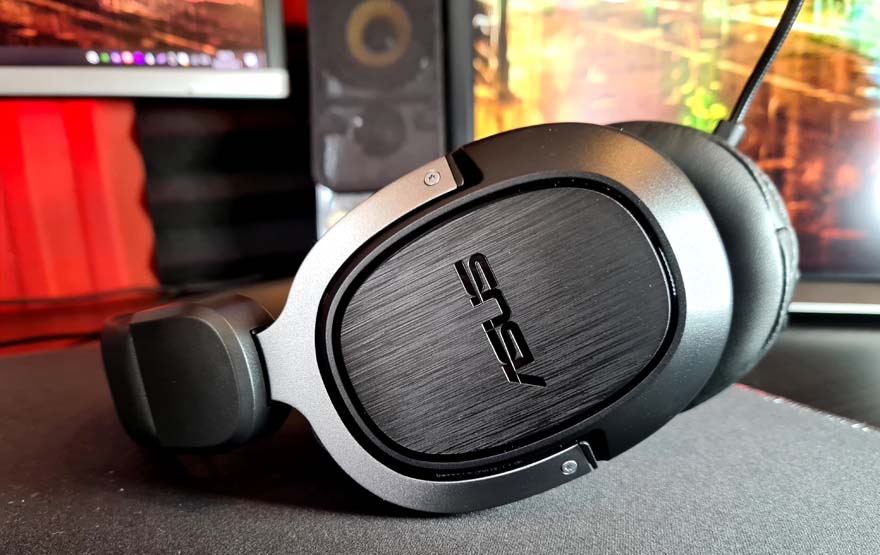ASUS TUF Gaming H3 Wireless Headset Review
A Closer Look & Performance
The first thing I can say about this headset is that it looks just like the wired version. Hurray, that’s my job done. I’ll pop the kettle on…
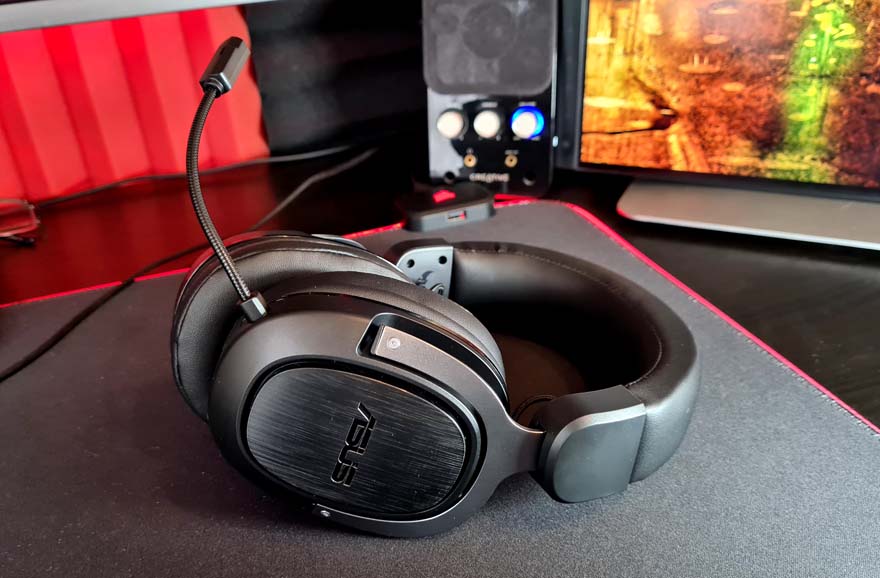
OK, so it looks the same as the headset that launched over a year ago, but really, that’s no bad thing, nor is it a big surprise. They’ve taken a working formula, cut the cables off and stuck some wireless hardware in there, and I can’t really complain about that. One thing is for certain, I loved the design then, and I still do, with that brushed aluminium effect on the back paired up with the sandblasted look of the steel headband. It’s rather elegant and stylish, and I love it.
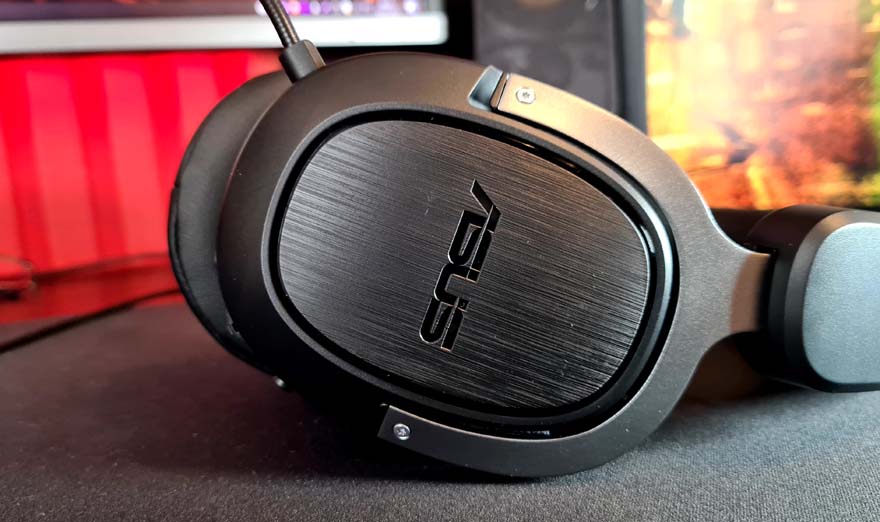
The headband is nicely padded and covered with a soft PU leather material. What’s really neat is that instead of a load of memory foam, it feels like a rubber band and air gap on the interior. The result is its light and incredibly comfortable. I can’t recall if the original H3 was the same or if that had memory foam though.
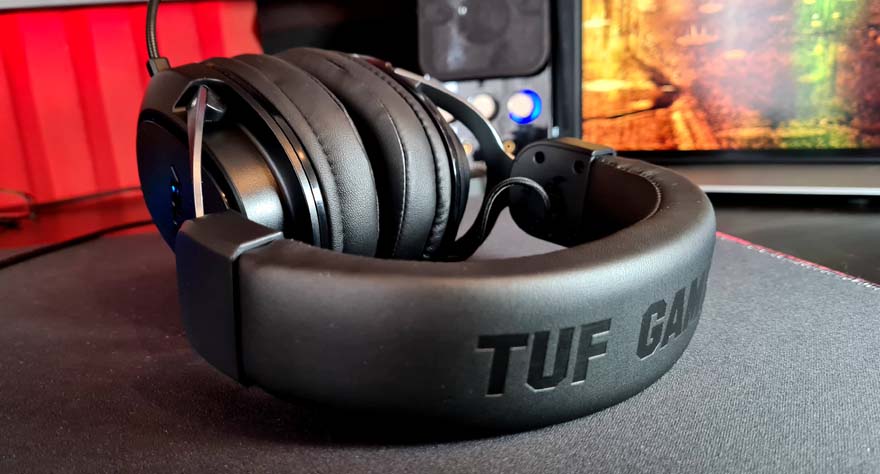
Stamped into the top of the headset, you’ll see the TUF Gaming logo, which looks neat enough, but maybe something a lot smaller would have looked more tasteful. This looks a bit too “Gamer” for an otherwise very slick looking headset.
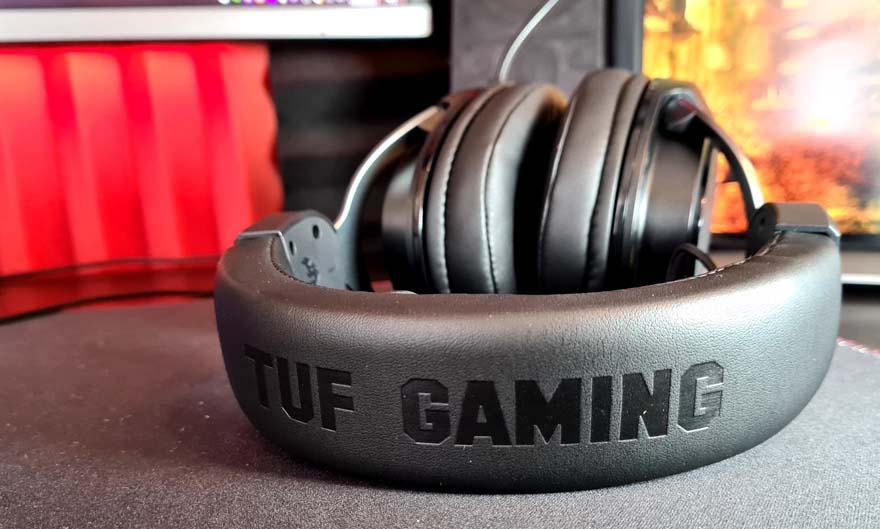
The ear cups are nice and large, allowing for those mighty 50mm drivers. Plus, there’s a good range of ergonomics here, ensuring you can get a comfortable fit and the best sound.
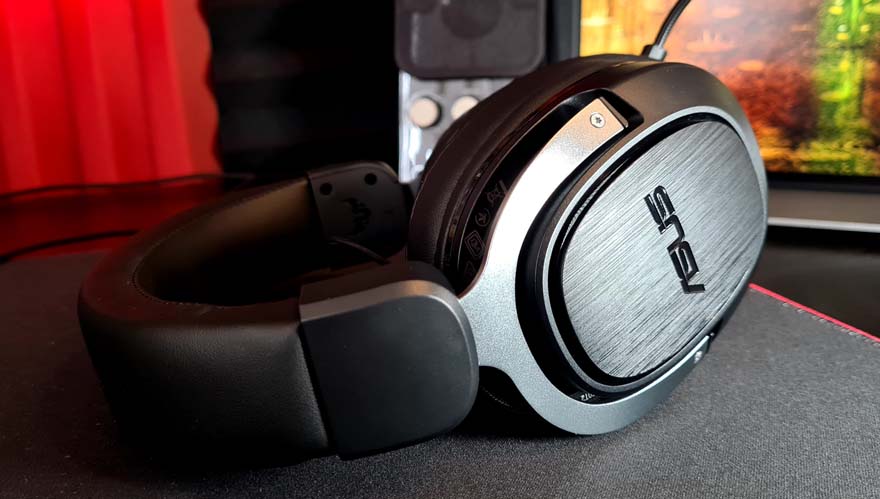
The ear cups are mounted on steel arms that allow for a massive range of movement, so they should always sit flat around your ears.
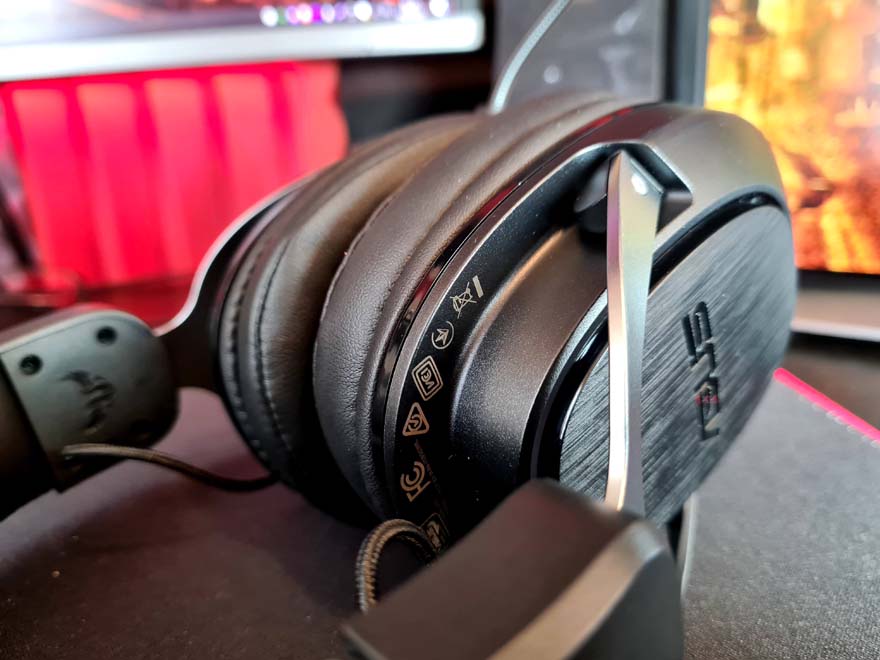
It all feels very secure and durable, which is obviously a good thing. The steel headband adjustment looks great too and provides a nice contrast to the black of the ear cups. You can adjust the headband on each side by simply pulling or pushing it. It uses a friction grip system, but it does seem to lock into place very securely, so it shouldn’t slip while you’re using it.
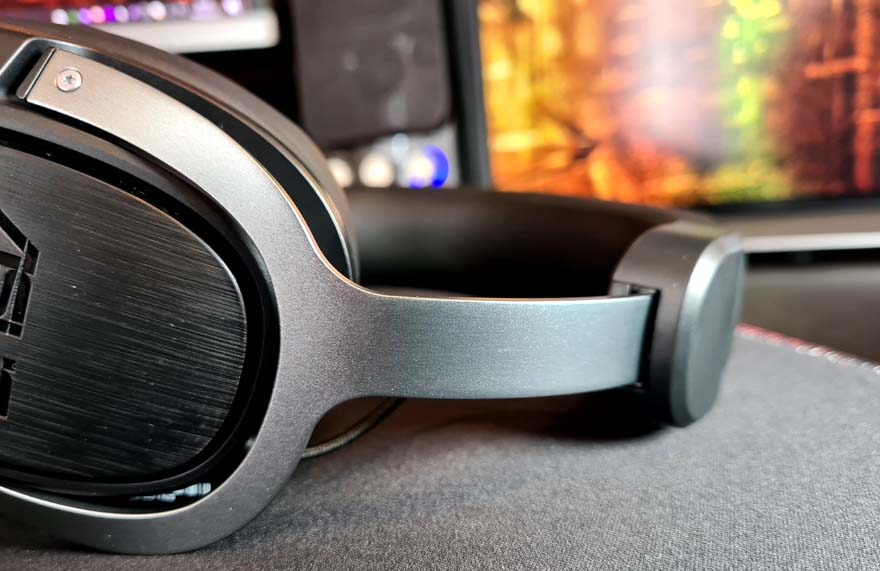
The headset is wireless, but like the wired version, you can see a cable running from each ear cup and passing through the headband. It’s a small detail, but it’s a nice quality cable and comes with tight braiding on it.
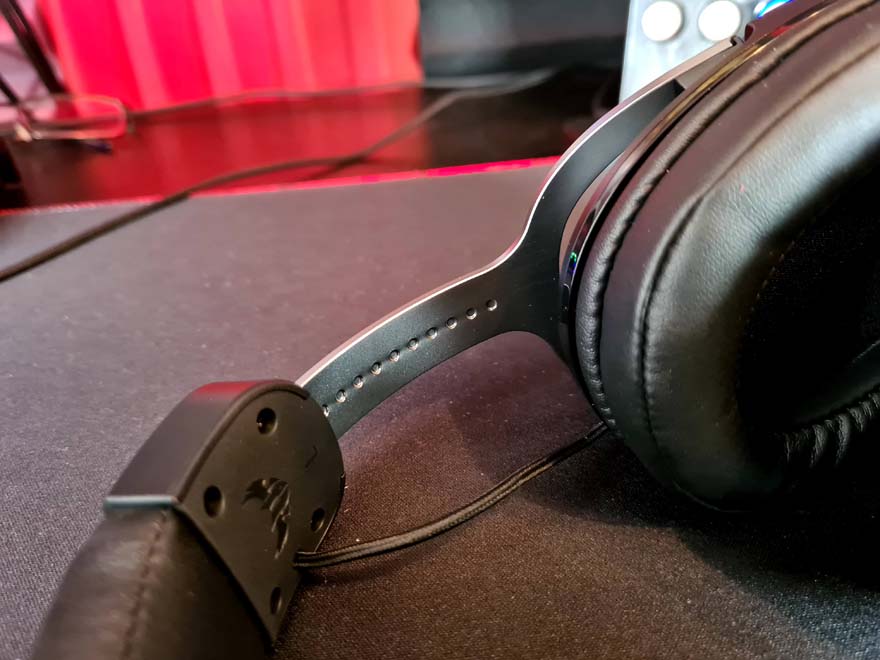
Taking control is easy enough with this headset, as there’s a microphone mute button, a volume jog switch, and the master power button right on the side. They all have a unique shape and feel to each other, so you can easily locate them without taking the headset off and looking.
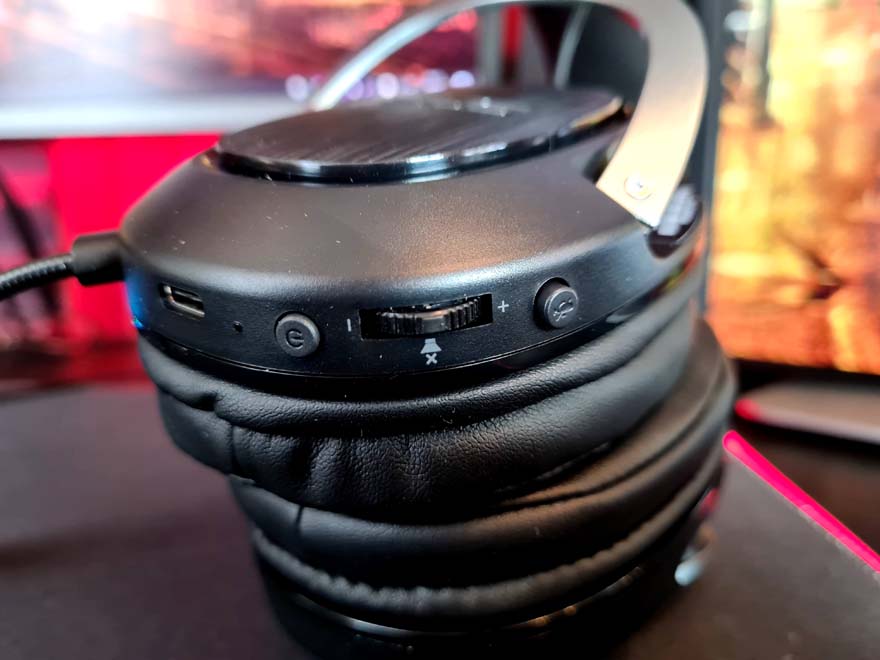
There’s a USB-C port here too, which is for charging the headset. You’ll get around 15 hours from a full charge, which was more than enough for me to run a few long trials on Elder Scrolls Online, listen to a few albums while working, and have a few work calls… which pretty much sums up my entire daily routine actually. However, when the battery did get low, the gaming didn’t have to stop, as it’ll charge while you play; I just plugged it into a USB power bank, actually.
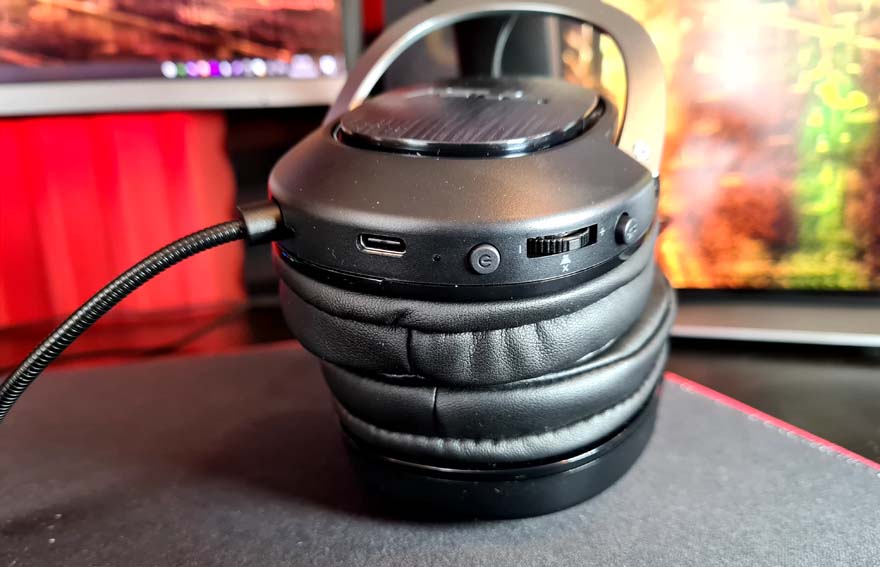
The ear cup padded looks like leather, but it’s actually more breathable, making it both comfortable, but also less likely to give you a sweaty ear on a warm day. It’s not as noise isolating as leather though, but more so than just soft cloth. If you have it loud, people in the room will hear it fairly clearly, so keep that in mind. That works both ways too, and you’ll be able to talk to and hear people in the room, which has its advantages.
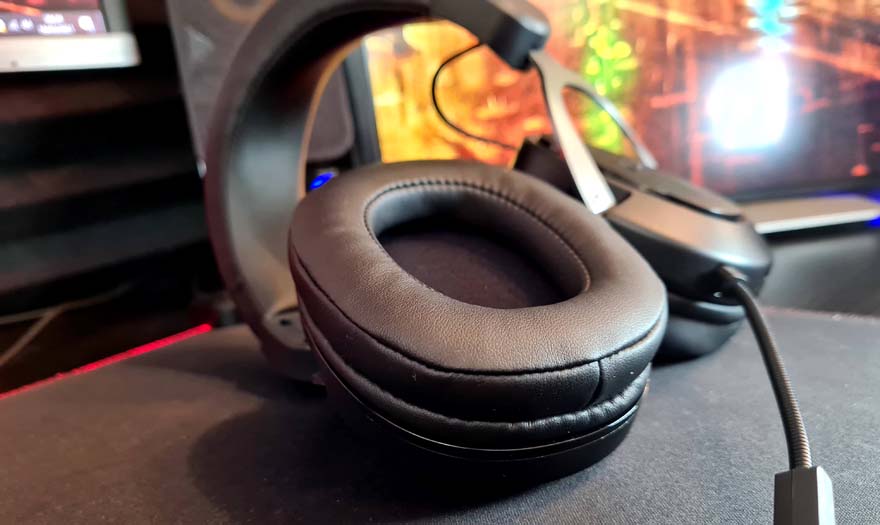
The ear cups are nice and big, and there’s a good recess in there, so your ears can sit behind the padding, getting the padding right around your ear for added comfort.
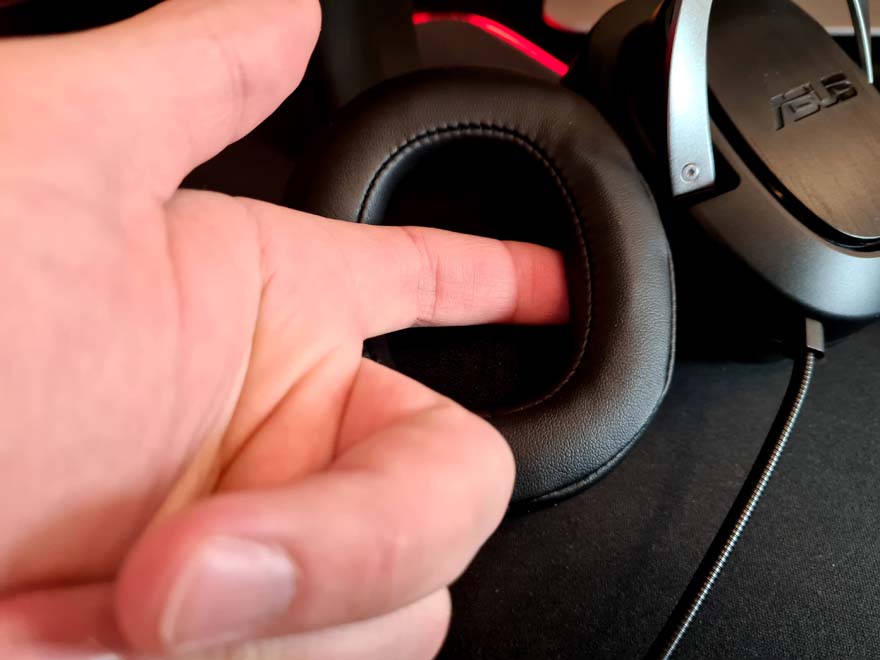
The microphone is the same as the one on the wired model, and its performance is the same. It’s bright, clear, and that’s about it, really. It’s got a flexible boom, so you can easily adjust it. However, it’s not a removable boom, even though it does look like one. I don’t like that, but hey, at least I can’t lose it like I normally would! It’s also “certified by TeamSpeak and Discord”, as it says on the box, and who am I to argue with that? Hmmm.
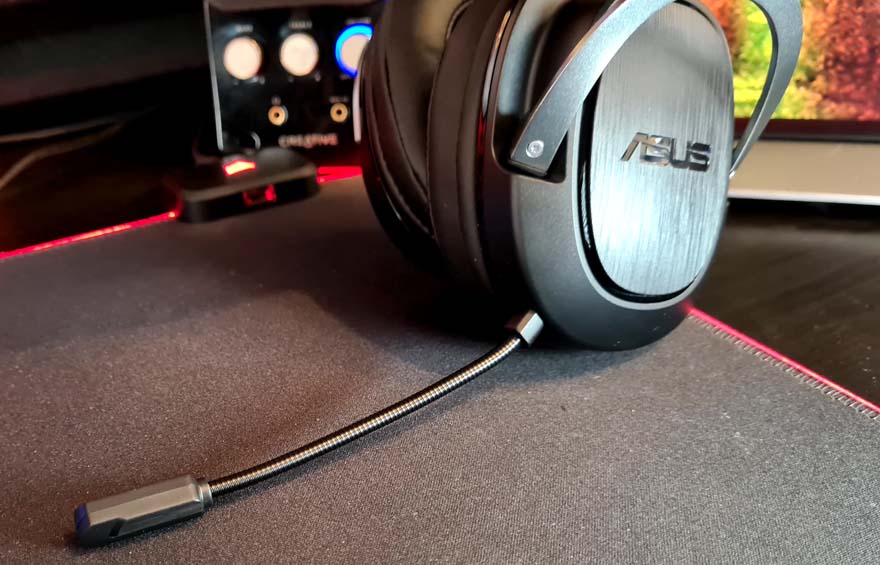
I’m happy to report that the drivers are the same as the old model, but well, I seem to be enjoying them a bit more this time. I found the old model sounded a little flat and didn’t quite have the bass I wanted. The wired model has Virtual 7.1 too, so I looked to address this in two ways. In Windows Sound Manager, I added a Bass Boost at +3dB, and the effect was a much fuller and overall a better sound. It did limit the maximum volume, but given this is already one of the loudest headsets in its class, that was definitely not an issue; I didn’t need to go past 75%.
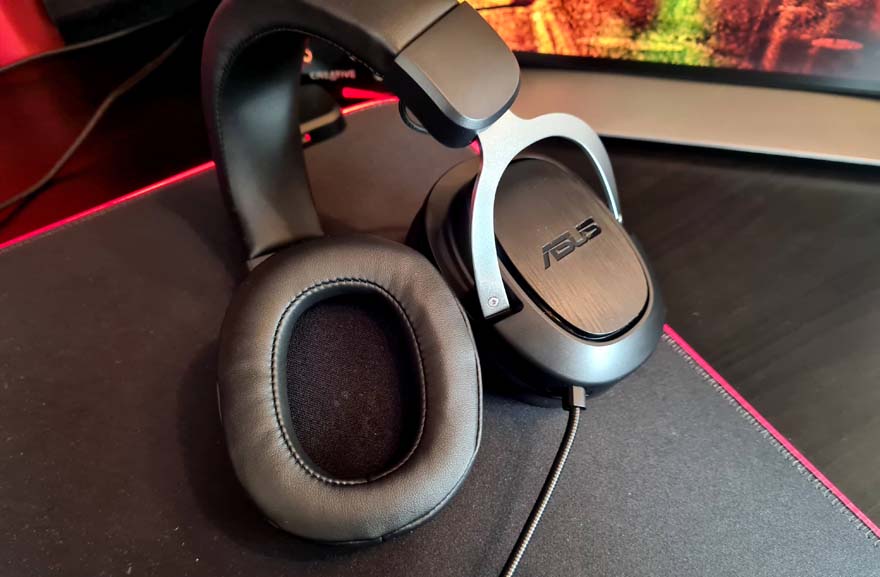
The headset offers a powerful sound, mostly thanks to the impressive maximum volume. I’m not saying you should deafen yourself, but if you’re stuck with a source that has low volume, that extra kick can come in handy. The bass boost really does help, so I strongly suggest that. However, it was Dolby Atmos Headphone for Windows that really gave it a nice boost, and it handled the object-based audio processing really well. You can use Windows Sonic too, but I don’t think that sounded as good. Playing a 5.1 or above game, such as Shadow of the Tomb Raider, sounded spectacular, as did my recent watch of Blade Runner 2049, mostly because it’s audio design was better than the script, but that’s another story.
